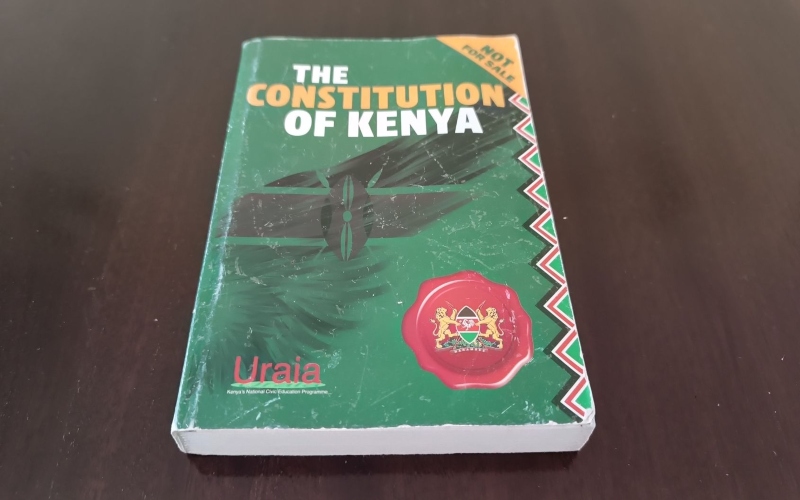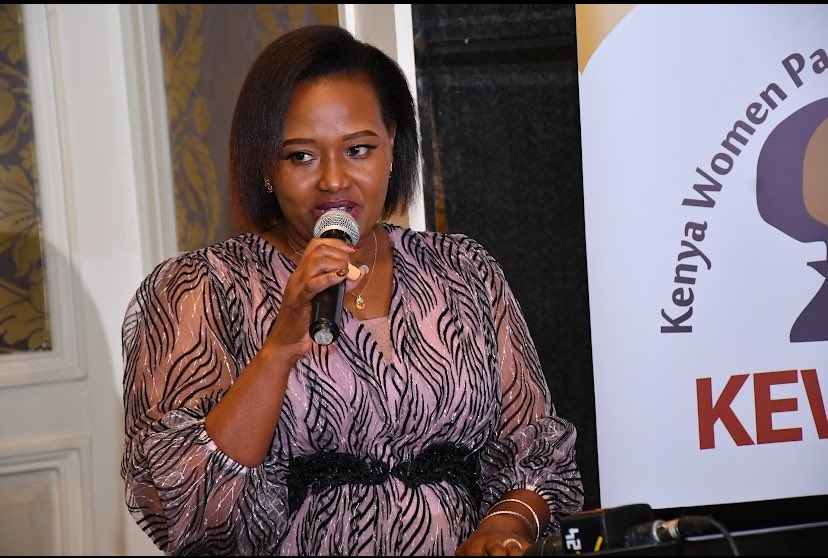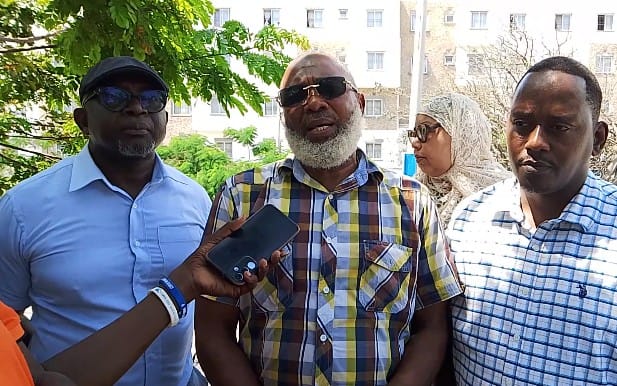Petition seeks to make Constitution mandatory school subject from primary to tertiary level

The petition calls on MPs to fast-track the entrenchment of the Constitution into the national curriculum. In his view, it should be compulsory and examinable like other subjects.
An economic rights advocate, Ng’ang’a Muigai, is rallying citizens to sign a petition urging all learning institutions to teach the Constitution of Kenya as a subject.
Muigai believes the country can only progress when children are taught the laws that govern it.
More To Read
- Maraga says presidential bid driven by desire to put Kenya back on constitutional rails
- From colonial cells to court reforms: A walk through Kenya’s Judiciary Museum preserving legal, freedom struggles
- Court halts Constitution Amendment Bill assent pending petition by Katiba Institute
- Senate denies plans to extend presidential term limit, create office of Prime Minister
- Explainer: Why defamation is a civil, not a criminal offence
- Hussein Khalid: Police brutality, rights violations persist 15 years after 2010 Constitution
The online petition, seen by The Eastleigh Voice and signed by several Kenyans, is premised on the belief that today’s generation must ensure the Constitution is studied in schools from primary to tertiary level.
In an interview, Muigai questioned why religion is dutifully taught in schools and tertiary institutions but not the Constitution, which he described as the most important document in the country.
“We want the Constitution of Kenya to be in the curriculum as a full mandatory subject that is examinable from primary to secondary, all the way to tertiary levels of education. Because if religion can be taught in schools to children, then something as practical as the Constitution of Kenya can be taught to children too,” said Muigai.
According to Muigai, matters concerning the law should be taken as seriously as religious education.
“Religion says teach children the way of God, and they shall not depart from it. Teach our children the ways of Kenya, and they shall not depart from it, because to be a good Kenyan is to know the law. We have many educated and intelligent people in this country who are not informed,” argued Muigai.
In the petition, he notes that on June 25, 2024, more than 60 Kenyans lost their lives, and many others have died since, all linked to agitation for constitutionalism.
He adds that despite deaths, intimidation by goons, and police brutality, Kenyans of different generations, social statuses, political affiliations, ethnic backgrounds, and faiths have continued to show up for the promotion of constitutionalism in the streets and social spaces, both online and physical.
“This is a clear indication that Kenyans want nothing but the Constitution to be respected, upheld, and defended in accordance with Article 3(1), considering people showed up for the protests carrying copies of the Constitution, flags, and water,” the petition outlines.
Muigai stresses that agitation for good governance shows Kenyans now understand that the 2010 Constitution is the nation’s foundation, just as the Bible and Quran are for Christianity and Islam.
“While civic education and public engagement on constitutional matters can be handled in different ways, it is not guaranteed that they will reach everyone in all corners of Kenya. Not one person or ten can teach the whole country to a point of full understanding on any matter, the Constitution being one of them.”
He argues that the education system is best equipped to deliver constitutional knowledge effectively.
The petition calls on MPs to fast-track the entrenchment of the Constitution into the national curriculum. In his view, it should be compulsory and examinable like other subjects.
“To ensure we seize this opportunity for eternal and sustainable benefits of our nation, we are calling Parliament to establish the Constitution 2010 as a full, mandatory, and examinable subject from primary through to secondary and tertiary level of education through an Act of Parliament (preferably The Katiba Shuleni 2026 Act) and feature it in the 2026/27 financial year budget,” the petition notes.
He adds that this will be achieved through the Ministry of Education, the Kenya Institute of Curriculum Development (KICD), and relevant House committees.
Muigai justifies his drive as one that will improve accountability in social, economic, and political aspects of governance and citizenship.
“It will improve individual and social patriotism among Kenyans and be the greatest honour and recognition to those who fought for the change realised in Kenya since independence.”
He further notes that if adopted, the proposal will help Kenya become a developed country, eradicate tribalism through constitutional literacy, improve foreign relations, open more employment opportunities, and enhance the quality of jobs available.
Top Stories Today













































